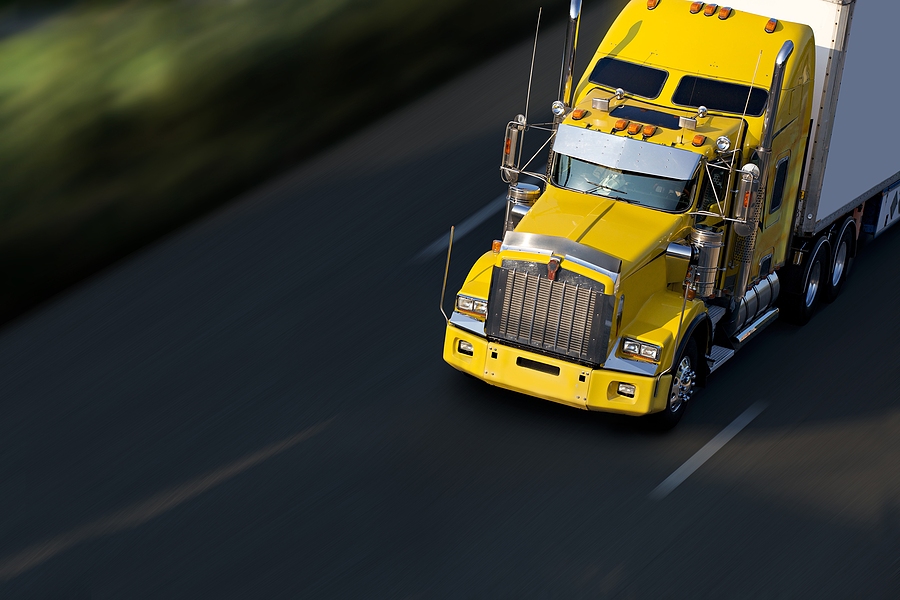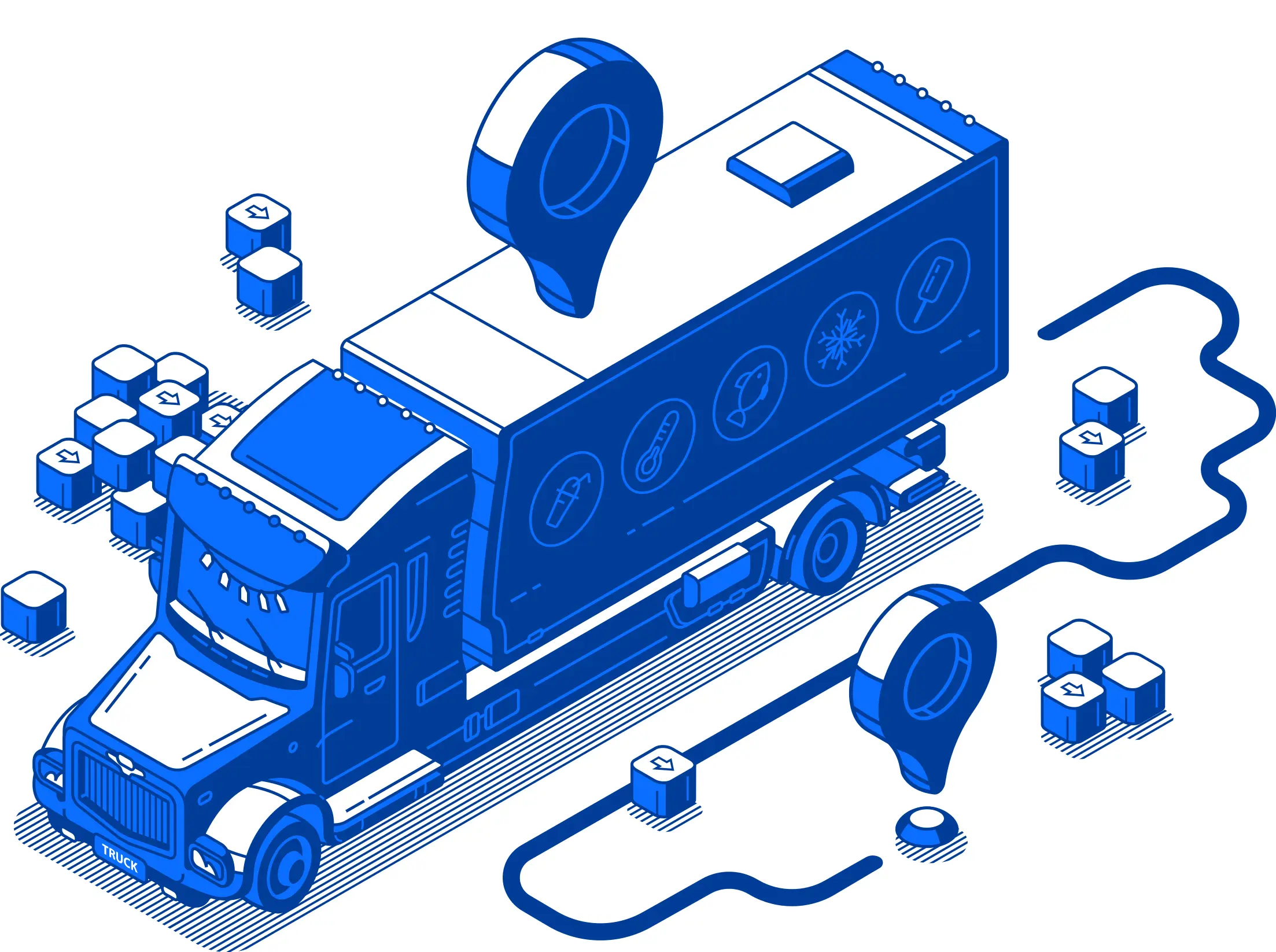Just the words “artificial intelligence” send some people into a panic. AI isn’t going to end your job in trucking. It’s not going to take over routes and loads, leaving you jobless. What AI and automation do is support the work you do.
AI and automation don’t replace you. They help you become efficient and competitive. As you navigate the ways AI and automation allow you to thrive as an independent trucker, make sure you’re also partnering with the right financial partners to achieve your dreams.
The Top Struggles Independent Trucking Operations Experience
Nine out of 10 new trucking companies fail to stay in business. Declining per-mile rates and increasing fuel and repair costs are a small part of the reason trucking companies fail. Independent truckers have additional struggles.
1. Competition and Autonomous Trucks
Trucking companies with large fleets have stronger cash flows, making it easier to manage the unexpected. They also have more fleets, enabling them to take on more work.
Higher capital allows these companies to invest in autonomous trucks. These trucks handle much of the driving, but need a driver to supervise the run. Autonomous trucks use AI and sensors to complete a run. As it’s AI, sleep is unnecessary, so they do more work than you can.
2. Costly Upfront Operating Costs
Upfront costs such as fuel, permits, licenses, insurance, and software are expensive. As an independent trucking operation, you need cash to keep up with your bills, and it’s difficult for start-ups to cover all these bills.
3. Deadhead Miles
One of the costliest mistakes truckers make involves deadhead miles. Suppose you’re hauling your trailer from Chicago to Dallas. If you’re not carrying freight on the return trip, you’re paying for fuel but not gaining anything. You need to make money both ways.
4. Expensive Regulatory Compliance
Independent truckers must meet all the federal and state regulations that apply to anyone in the transportation industry. Forgetting anything can be costly, including fines or loss of your CDL. This includes:
- Completing annual drug screenings and DOT physicals.
- Completing annual inspections, maintaining records for repairs and maintenance, and performing pre- and post-trip inspections with a Driver Vehicle Inspection Report.
- Getting and renewing a CDL, including necessary endorsements.
- Keeping a driver qualification file with motor vehicle records and other required documents.
- Maintaining Hours-of-Service (HOS) compliance through an Electronic Logging Device (ELD).
- Obtaining a USDOT number.
- Paying the annual Heavy Vehicle Use Tax (HVUT) if necessary.
- Registering for the International Registration Plan (IRP) if your work takes you to other countries.
- Reporting fuel consumed in another country as required by the International Fuel Tax Agreement (IFTA).
5. High Equipment Costs
Equipment costs a lot. Even a used truck and trailer costs tens of thousands of dollars. You also need the technology required by the FMCSA, a smartphone when you’re on the road, and emergency equipment like flares and mechanic tools.
6. Time-Consuming Administrative Duties
After hauling a load, you must bill the broker or shipper. It takes time to enter the numbers into your accounting software. You also need to set aside several hours each month to account for paid invoices and chase unpaid ones.
7. Weak Cash Flow
Weak cash flow is the biggest challenge for independent trucking companies. Without cash to cover bills, regulatory expenses, and payroll, your business will struggle to thrive. You can’t rely on business credit cards, as that debt becomes crippling.
Explore the Benefits AI and Automation Offer to Independent Truckers
While it’s hard to take off and thrive, it’s possible if you protect yourself against the pitfalls that impact others. AI and automation provide tools that help independent truckers excel.
- Automated Office Tasks: AI can handle tasks such as updating permits and licenses, shopping for the lowest insurance rates, verifying amounts due, and ensuring bills are paid on time.
- Efficient, Optimized Routes and Loads: With AI analyzing maps, trailer capacity, and load size, efficient, optimized route planning is possible. You avoid deadhead miles and maximize income on every trip you take.
- Hands-Free Technology: Automation streamlines your job. Tell your phone to dial while you’re behind the wheel. Ask your GPS to reroute using certain roads or towns without having to interact with a touchscreen.
- Predictive Maintenance: AI tools scan your truck’s components and identify wear. These scans ensure maintenance is completed before parts break down and lead to costly emergency repairs.
- Safety on the Road: Today’s trucks are equipped with cameras and sensors that keep you safe. Your truck tells you when someone’s in your blind spot. You can’t drift out of a lane without truck sensors alerting you. Automated high beams, back-up cameras, and pedestrian alerts all keep you and others safe.
- Streamlined Compliance: Federal and state compliance regulations are complex to keep up with. They change regularly. Avoid driving too many hours, not taking long enough breaks, or failing to get enough sleep with AI’s help.
Factoring Helps Truckers Achieve Financial Success
Freight factoring partnerships provide the means to a strong cash flow. It works like this.
- Complete a delivery.
- Request payment from the factor.
- They process your request and approve it if it meets their requirements.
- The amount due is calculated, subtracting the freight factoring fee.
- Get paid later that day or within a couple of business days, depending on the agreement.
- The freight factoring company waits for your client to pay them.
- If they don’t repay, you might be obligated to repay the advance you received, depending on your contract.
Many independent truckers wait weeks or months to get paid, making it hard to cover routine expenses like fuel, insurance, equipment loans, and payroll. It helps specifically in these three areas.
1. Boost Your Cash Flow
Your cash flow increases because you’re paid as quickly as the same day. You don’t wait to get paid. While there’s a freight factoring fee, it’s far less than the interest rate on a business credit card, late payments, or damage to your credit score.
2. Reduce Risk
When you have money coming in, you reduce risk. Most freight factoring specialists provide business credit checks that you use to analyze brokers and shippers. Stop taking work from risky companies.
There are also non-recourse agreements available that further reduce the risk. With a non-recourse agreement, you’re not held responsible if your client fails to pay the freight factoring company due to bankruptcy or sudden closure.
3. Save Time or Money on Office Staff
As an independent trucker, you’re on the road all day. When do you have time to generate invoices and track payments? Many drivers are forced to take a day off to handle administrative work.
Avoid spending money on an office worker or taking a day off to handle invoices. A freight factoring company completes invoicing and collections on your behalf.
Freight factoring companies are not alike. If you look at the available options, you’ll find a wide variety of rates, services, and terms. Some companies offer rates as low as 0.65%, while others say 2.5% is the lowest rate. Advance rates of 100% are possible with some companies, but others may offer only 95%.
Those are important factors to consider, but you also want a company that understands the transportation industry. You want an expert who understands the problems independent truckers encounter and how to overcome them.
Saint John Capital offers extremely low rates and 100% advances. Plus, the company has decades of experience in the trucking industry. Sign up for free and learn more about our intuitive app, same-day payments, and 100% advances.











